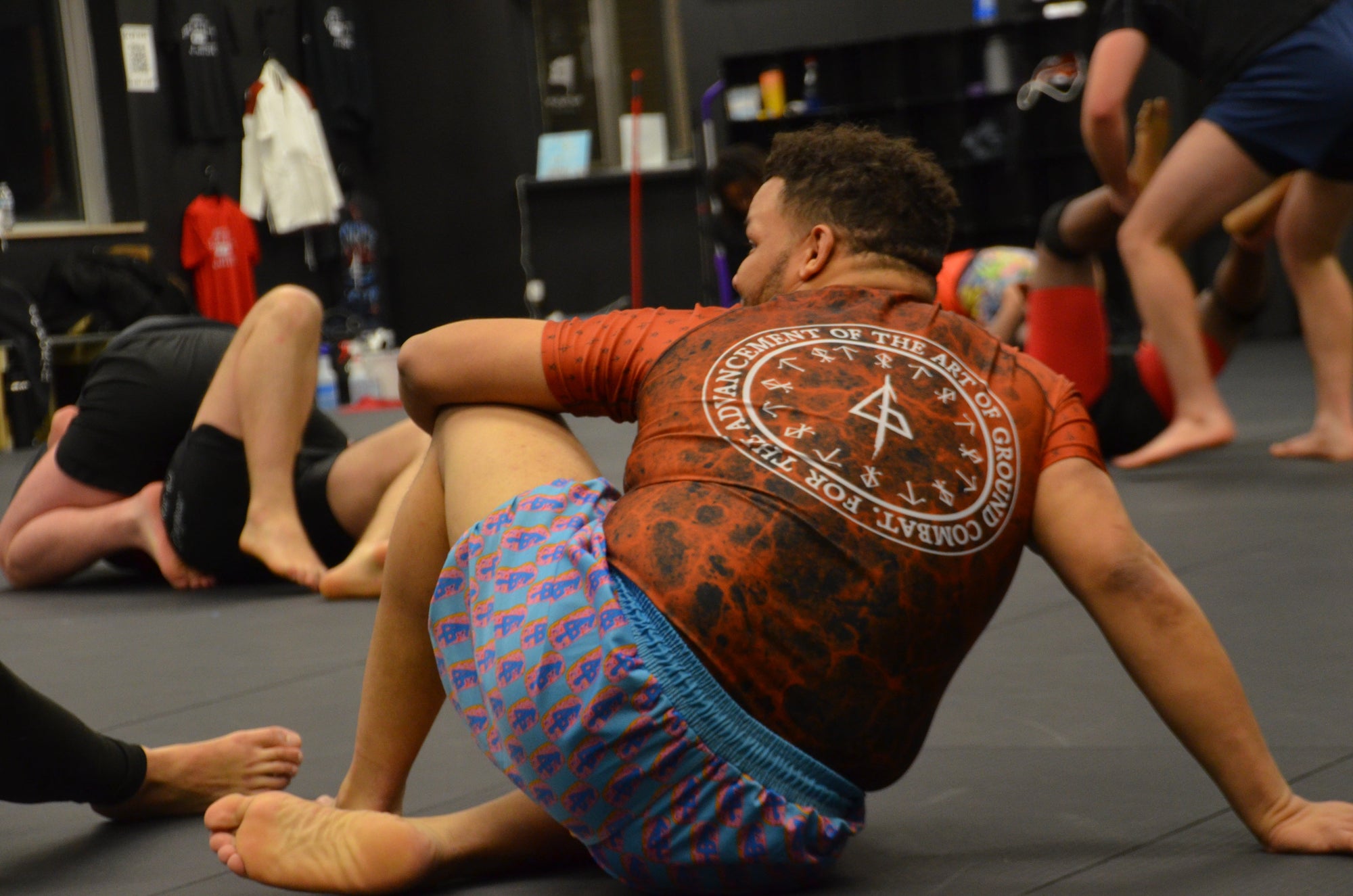The key to maximizing recovery is integrating it into your routine without cutting into your training schedule. Here’s how:
1. Prioritize Active Recovery
Active recovery is movement-based, meaning you’re still training—just at a lower intensity. It promotes blood flow, reduces soreness, and helps prevent injuries.
Try incorporating:
- Flow rolls instead of hard sparring on certain days.
- Yoga or mobility drills before or after class to keep joints and muscles healthy.
- Low-impact conditioning like swimming or cycling on rest days.
This way, you’re still working on movement and endurance without adding unnecessary strain.
2. Improve Post-Training Recovery
What you do right after training plays a huge role in how you feel the next day. Here’s how to make the most of your recovery window:
- Hydration & Nutrition: Drink water and eat a protein-rich meal to replenish energy and support muscle repair.
- Stretching & Foam Rolling: Five to ten minutes of targeted mobility work after class can prevent stiffness.
- Cold Showers or Ice Therapy: Helps reduce inflammation and speed up recovery, especially after intense sessions.
These small habits add up over time and allow you to train at full capacity more consistently.
3. Get Serious About Sleep
No supplement, recovery tool, or mobility routine can replace high-quality sleep. This is when the body repairs muscles, reduces inflammation, and consolidates learning from training.
Fix your sleep game by:
- Getting at least 7-9 hours per night.
- Limiting screen time before bed to improve sleep quality.
- Avoiding late caffeine or heavy meals before sleeping.
If you’re serious about long-term progress in BJJ, prioritizing sleep is non-negotiable.
4. Listen to Your Body
Most grapplers are terrible at listening to their bodies. They push through pain instead of adjusting their training. Recovery isn’t just about doing the right things—it’s also about avoiding the wrong ones.
- If your joints are constantly sore, scale back intensity for a session or two.
- If you feel completely drained, adjust your training frequency.
- If an injury is nagging, address it early before it worsens.
Smart training means knowing when to push and when to recover. Ignoring pain isn’t toughness—it’s recklessness.
Train Smarter, Recover Faster, Keep Improving
You don’t have to choose between training hard and recovering properly. The best grapplers maximize both by integrating recovery into their training, not around it.
By making active recovery, post-training habits, sleep, and body awareness part of your routine, you’ll train more consistently, avoid injuries, and perform at a higher level for years to come.
Recovery isn’t a break from progress—it’s the key to long-term success. Go Forth & Conquer.
Visit Our Website For Gear!



